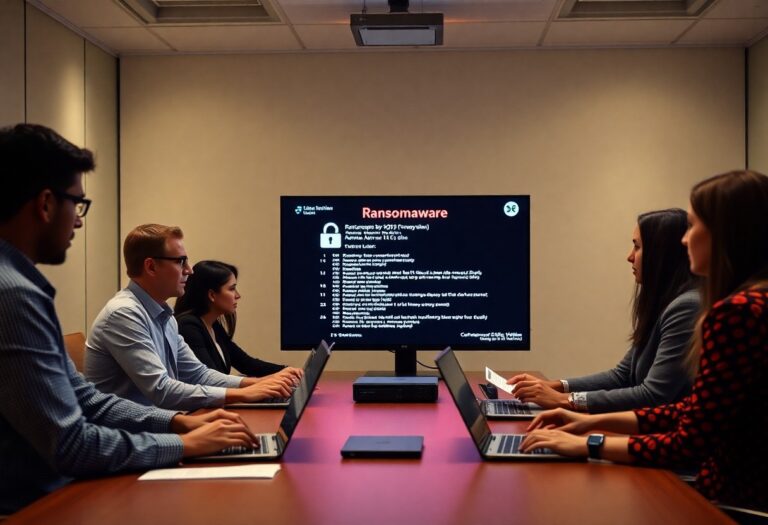“Cybersecurity Strategy that Shields, Secures and Sustains”
A recent cyberattack on a major healthcare organization led to a successful breach of its network, compromising sensitive data, including database files, source code, and documents. The attackers mocked the company’s cybersecurity strategy by publicly sharing patient data as proof of the breach, using a malicious tone to describe their intrusion. Despite generating millions in revenue, the company failed to protect its sensitive information from the adversaries.
Isn’t it time to reflect on the data security readiness of small businesses?
Cyber Threats Are Real for Small Businesses
Indicators of Compromise (IoCs) linked to a notorious attack group were detected in various sectors, including education and recreation. This group targets well-known educational networks worldwide. Yet many Small and Medium Businesses (SMBs) mistakenly believe that cybersecurity is only for large corporations due to perceived high costs. In reality, allocating just 10% to 20% of an IT budget can significantly improve data security.
In 2021, the average recovery cost for a ransomware attack was around $1.85 million. Even when organizations paid the ransom, they recovered only about 65% of their data. Although only 32% of victims choose to pay, the broader economic impact is substantial.
Why SMBs Are at Risk???
About 80% of businesses fail to recognize the critical role of cybersecurity. A significant threat stems from employees’ lack of awareness about common cyberattacks, including phishing and ransomware. Post-incident reviews often reveal that compromised organizations had insufficient employee training, increasing their vulnerability.
Cybercriminals target SMBs due to their limited detection and response capabilities. Hackers exploit common attack vectors such as:
- Credential theft
- Human error
- Ransomware attacks
- Denial of Service (DoS) attacks
Implementing a cost-effective SOC solution can transform cybersecurity for SMBs by utilizing its underlying benefits.
Benefits of SOC for SMBs as effective Cybersecurity Strategy
- Early Threat Detection: Continuous monitoring helps detect threats before they escalate, minimizing damage. Quick detection limits the impact on a company’s digital infrastructure, safeguarding its reputation and ensuring secure handling of sensitive customer data, such as credit card information. Data breaches can severely damage customer trust, making SOC implementation crucial for small businesses in Bangladesh and beyond.
- Protecting Sensitive Customer Data: Protecting sensitive data is essential for modern businesses. SOCs use encryption and access control to secure customer databases. Integrating threat intelligence further strengthens SOC capabilities by proactively identifying potential threats.
- Meeting Compliance Requirements: Effective data protection requires regular audits and security assessments. A well-implemented SOC provides a centralized platform for network monitoring, threat detection, and incident response, ensuring comprehensive cybersecurity that aligns with evolving threats.
Affordable SOC Solutions
SOC-as-a-Service (SaaS) offers an affordable option for small businesses, providing expert security teams through Managed Security Service Providers (MSSPs). Leveraging cloud-based SOC services allows SMBs to enhance data security without compromising quality.
Would you like to see more affordable SOC solutions for small businesses? Share your thoughts in the comments!








